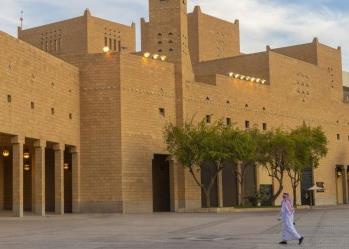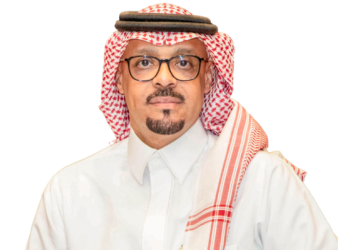
The hills surrounding Beirut offer a perfect vantage point from which to view the sprawling city at night.
Several hundred feet above sea level, it is possible to see the lights of the airport’s runway reflecting across the Mediterranean Sea. Downtown Beirut, with its cafes and shops, glows gold, but away from the centre, sections of the city are conspicuously dark.
The street lights are off, as are the lights in the high-rise residential buildings with their outlines just visible against the night sky. The few dim lights that punctuate the darkness are powered by private generators run by residents.
Revitalising utility
The problem is down to the failure of the state-owned utility, Electicite du Liban (EDL), to provide enough power to meet the country’s needs. Nobody in Lebanon is guaranteed a 24-hour supply of electricity.
Most areas only receive between 12 and 16 hours of power a day. There are few subjects that stir as much frustration in Lebanon as the problems at EDL, which are leaving its cities in darkness.
The task of revitalising the power utility, which is losing money and failing to provide enough electricity, is the responsibility of Ziad Hayek, secretary-general of Lebanon’s Higher Council for Privatisation (HCP) who has led the organisation since his appointment in June 2006.
Reforming the organisation is likely to take several years. It is not a simple task and he needs the support of parliament to push through the necessary changes. “The implementation of the restructuring of EDL would take about one year,” says Hayek. “Assuming no changes are made to the current reform programme, the necessary legislation is passed and the contemplated projects are given the go-ahead without delay, the completion of the reform programme would take about four years.”
Progress, however, is unlikely to be that smooth. Long-term political instability means that even when the necessary support is there, it cannot be relied on to last long.
“Unfortunately, the average life of a Lebanese government is a year and four months,” says Hayek. “Every time it changes, a new minister comes and normally wants to review the existing plans. By the time they get to implement anything, the government changes again. That is why we have been talking about these reforms for the past 10 years. We are hoping that the government will not deviate from the reform plan.”
Working in the political sphere is still relatively new to Hayek, who before his current role gained substantial business experience working in a series of jobs in the banking sector. Prior to his appointment at the council, he was a senior managing director of Bear Stearns, president of Indosuez Mexico, and a vice-president of Salomon Brothers and Citibank.
HCP, is however, closely integrated with the government, and Hayek’s own office overlooks the fountain and courtyard of the Grand Serail, the headquarters for the prime minister which is close to parliament.
HCP was established in 2000 and has four permanent members drawn from the government: the ministers of finance, economy & trade, justice and labour. The ministers of telecommunications, energy & water, health, and public works also get involved when any privatisations in their sectors are being discussed.
The current reform plan for those privatisations was implemented following the third international donor conference, held in Paris in January 2007.
Rebuilding infrastructure
That raised a total of $7.6bn in pledges from Saudi Arabia, the US, France and others to address the country’s debt and rebuild its infrastructure following the war between Israel and Hezbollah the previous summer.
While reviving the electricity sector is one of the most pressing areas for Hayek, the reforms are likely to affect almost all the government ministries. One of the aims of HCP is to increase the efficiency and productivity of sectors that have been state-controlled until now and to increase the amount of shares in major infrastructure firms held by Lebanese citizens. Ultimately, however, the aim is to encourage more foreign investment, reduce the crippling burden of public debt from the inefficient companies and act as a catalyst for economic growth.
Although Hayek is reluctant to confirm it, a number of observers in Lebanon claim that HCP will soon become the de facto public-private partnership unit for the entire country, covering all privatisation projects from ports and telecoms networks to waste management.
However, the reform programme is still subject to approval by parliament. In its current form, the draft legislation outlining the future role of HCP has only won the approval of the Council of Ministers. Despite the urgent need for change, the next stage is unlikely to happen quickly, and not before the next round of parliamentary elections that are due to be held in May 2009.
Plans for reforming the electricity sector have been seen before. In 2005, the Energy & Water Minister Maurice Sahnawi proposed a number of reforms, as have his successors.
Strictly speaking, the latest reform proposal for the power sector is not privatisation. The plan includes participation from the private sector, but EDL will remain a state-owned utility. When the company becomes more healthy and can attract investors, privatisation will be considered, says Hayek, but this is still some way off.
For now, Hayek is focusing on the reorganisation of EDL, breaking it into six separate companies handling specific functions. Three will be responsible for power generation, two for distribution and one for transmission. All six businesses will come under the umbrella of a holding company, helping to create a level of transparency yet unseen in Lebanon in this sector. “Unbundling will allow us to bring more transparency and accountability to the sector. This should create creditworthiness for EDL”, says Hayek.
Addressing inefficiencies
Equally important for the future of the power sector, the changes will also seek to remove EDL from the political arena. What EDL needs, says Hayek, is independence. “Give it a board of directors and let it run like a corporation,” he says.
Institutional problems and inefficiencies are not the only problems for EDL. It has four major power plants, two of which are well past their expected life spans and in urgent need of rehabilitation. The others run on fuel oil despite being designed to run on gas as there is no gas available for the plants.
Between them, the plants do not produce enough power to meet demand, falling short by about 800MW.
The most simple solution would be to build more power plants but the cash-strapped government in Beirut is in no position to spend the money required for such projects.
Hayek hopes the private sector will provide the necessary capital for new plants. To enable this to happen, the government will need to commit to buying power from private sector firms at a price that allows them to make a profit.
The next step to introducing private investors to the energy sector is to establish a regulatory authority responsible for issuing licences. This requires parliamentary approval and so until parliament reconvenes, Lebanon will have to wait.
In the meantime, there has been some movement. A memorandum of understanding has been signed between the Energy & Water Ministry and Zahle Electricity Company, the private power firm that has a concession to distribute EDL’s electricity in the Zahle region to the east of the country.
While the politicians procrastinate, EDL continues to lose money. According to the Finance Ministry, the company made a loss of $662m in the first five months of 2008, 85 per cent higher than in the same period in 2007. Losses are expected to top $1bn for the year as a whole due to a mixture of low tariffs and an inability to collect all the revenues it is owed. “People like to talk about losses but this is a misnomer,” says Hayek. “Even if it collected 100 per cent of its dues, EDL would still not be able to cover its costs.
“It costs about LBP400 ($0.30) to produce a kilowatt hour and the average tariff is about LBP125 a kWh. So there is no way that EDL could ever cover its costs.”
Stemming losses
But the company does not collect all its dues and one of the main reasons for the massive losses is the theft of electricity.
Most observers estimate these non-technical losses account for between 18-22 per cent of all power generation. In some cases, the theft is simply to power a few light bulbs in an apartment, but it is not uncommon to have entire buildings powered through illegal connections to the grid.
The local media covers these thefts extensively, perhaps to a greater extent than the incredible losses themselves, and accusations abound that one or other community is behind the thefts.
The proposed reforms will tackle this problem through the installation of 1.2 million electricity meters in homes across the country. This will help to map the locations where thefts are taking place and enhance the accuracy of bills.
The project to install the meters is subject to tender under the supervision of HCP but, as with everything else, it is awaiting approval from the government before any contract award can be made.
Hayek also hopes that the price EDL is able to charge for electricity should also soon come closer to matching the actual cost of power generation, ending the current system of subsidies. “The government has to recognise that the current tariff system has to be altered to better reflect the current environment and higher costs of fuel,” says Hayek.
“At the same time, the government has to adopt a subsidy policy that takes care of the disadvantaged and is more equitable. Under today’s blanket system, the subsidy ends up going to the rich.”
Despite the prospect of higher prices, for most Lebanese, the parlimentary approval for these reforms of the energy sector cannot come soon enough.
“We hope very soon that the privatisation programme will open the door wider for private sector participation,” says Hayek.
“It is in the interest of all of us, not only strategic and financial investors.”
Career History
1980: Masters in International Management from the University of Texas
1981: Vice-president of Citibank
1992: Vice-president of Salomon Brothers
1994: President of Indosuez Mexico
1997: Senior managing director of Bear Stearns
2003: Chief executive officer of Lonbridge Associates
2006-present: Secretary-general of Higher Council for Privatisation
You might also like...

Qiddiya evaluates multipurpose stadium bids
26 April 2024

Al Ula seeks equestrian village interest
26 April 2024

Morocco seeks firms for 400MW wind schemes
26 April 2024

Countries sign Iraq to Europe road agreement
26 April 2024
A MEED Subscription...
Subscribe or upgrade your current MEED.com package to support your strategic planning with the MENA region’s best source of business information. Proceed to our online shop below to find out more about the features in each package.








